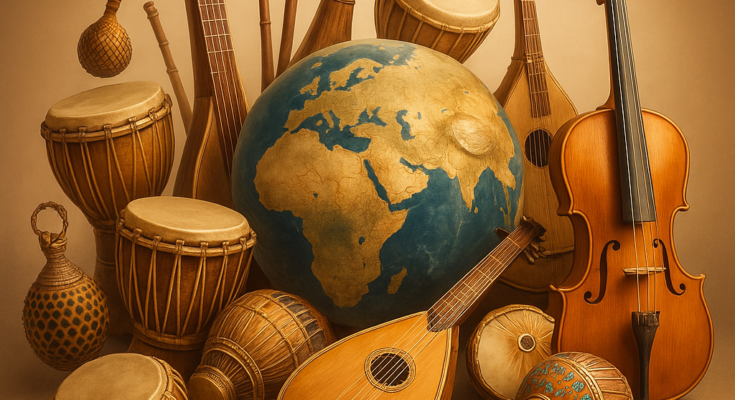Harmony & Taboo: How the World’s Faiths and Cultures Shape Music’s Role
Music has always been humanity’s universal language—yet its acceptance, purpose, and power vary wildly across belief systems and traditions. From sacred hymns to forbidden melodies, let’s explore how religions and ancient civilizations have wrestled with music’s soul-stirring magic.
Sacred Notes: Music in Abrahamic Faiths
Islam: A symphony of debate. Scholars clash over music’s role—is it a distraction or a delight? Many traditional schools forbid tunes that “distract from God” or glorify vice, while others embrace instrumental melodies during celebrations, so long as they steer clear of sin.
Christianity: Grand cathedrals echo with choirs and organs, turning hymns into prayers. Yet early Protestants often shunned instruments, fearing they’d drown out devotion. Today, gospel music sways churches worldwide, proving rhythm and reverence can coexist.
Judaism: Ancient Levites strummed lyres in temples, and Psalms still sing of tambourines and harps. But modern ultra-Orthodox groups often mute secular music, preserving sacred sounds for worship alone.
Eastern Echoes: Divine Vibrations
Hinduism: Here, music is prayer. Ragas (melodic frameworks) rise like incense during rituals, while bhajans (devotional songs) bridge earthly and divine. Instruments like the sitar and tabla aren’t just tools—they’re spiritual conduits.
Buddhism: Silence reigns in meditation halls, yet ceremonies pulse with chanting, bells, and ceremonial drums. For some sects, secular music distracts from enlightenment; for others, it’s a path to inner peace.
Ancient Soundscapes: Music as Cosmic Order
Egypt: Priests channeled gods through harps and sistrums, believing melodies could commune with the divine. Even funeral rites throbbed with music, guiding souls to the afterlife.
Greece & Rome: Philosophers like Plato saw music as moral math—certain scales uplifted souls, while others “corrupted youth.” The lyre symbolized reason; the flute, chaos.
Tribal Rhythms: Drums, Spirits, and Survival
African Tribes: Drums beat life’s rhythm—marking births, deaths, harvests, and wars. Music isn’t entertainment here; it’s communal memory, healing, and a bridge to ancestors.
Native Americans: Flutes whisper to the wind, while drums mimic heartbeats in rituals. Songs aren’t sung—they’re prayed, weaving humans into nature’s web.
Why Does Music Divide and Unite?
- Sacred vs. Profane: One culture’s worship is another’s heresy.
- Morality’s Soundtrack: Ancient Greeks feared musical modes; Puritans banned dancing.
- Identity & Resistance: For marginalized groups, music preserves heritage against erasure.


